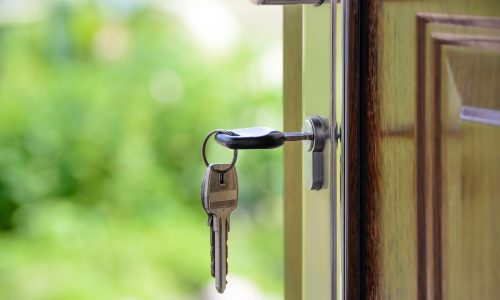-
Lot Size18,296 sqft
-
Home Size2,733 sqft
-
Beds4 Beds
-
Baths3 Baths
-
Year Built2003
-
Days on Market3
Buying a Fixer-Upper in Encinitas? Here Are 7 Tips!
- Linda Moore, Real Estate Tips
- encinitas, encinitas home improvement, fixer-uppers, homes for sale in encinitas, Linda Moore, Real Estate agent Linda Moore, remodeling, repairs
- June 21, 2014

If you are looking to buy a fixer-upper home in the Encinitas area, you may want to follow these seven steps. These tips will help you find out how much you can afford, how much to offer, and if buying a fixer-upper home is right for you.
1. What Can You Fix Yourself?
Many television shows make it look so easy to do home improvement work, but do you have the correct tools, know how, and time to do it? Sure painting and wallpaper are relatively easy, but electrical work can be dangerous when done by amateurs. Not to mention less-than-professional results will not really increase the value of your fixer-upper house.
2. Price of Repairs & Remodeling Before Making an Offer
Have your contractor do a walk-through of the house so that he or she can give you a written cost estimate on work to be done. If you are going to do the work yourself, price out the supplies. No matter what, make sure you tack on 10% to 20% to cover unforeseen problems that can often come up with a fixer-upper home.
3. Check on Permit Costs
Ask the local officials if the work you are trying to have done requires a permit and how much would it cost. Doing a work without a permit may save money now, but it can cause a multitude of problems when you try to resell your home.
You should decide if you are going to be getting the permit yourself, or if your contractor can arrange for them because getting a permit can be time-consuming. Inspectors may force you to do additional work to change the way you wanted to do a project before they allow you the permit.
4. Double Check the Pricing on Structural Work
If the fixer-upper home you plan on buying needs major structural work, you may want to hire a structural engineer to inspect the home before you put in an offer. That way you can be confident in how you are going to budget for the full extent of the work needed on the fixer-upper.
With the structural engineer’s estimate, you should ask for a written estimate for repairs before buying a fixer-upper with structural issues.
You shouldn’t purchase a home that needs major structural work unless the following conditions apply:
- You’re the home at a steep discount
- You are positive that you have uncovered the extent of the problem
- You know that this structural problem can be fixed
- You have a biding written estimate for the repairs
5. Check the Cost of Financing
You want to make sure you have money for a down payment, closing costs, and repairs without losing all of your savings. If you plan to fund the repairs with a home equity or home improvement loan, you should do the following:
- Get yourself pre-approved for both a home equity and home improvement loan.
- Make the deal contingent on both the purchase money loan and renovation money loan; so you aren’t forced to close the sale when you have no loan to fix the home.
- Consider the Federal House Administration’s Section 203(k) program, which is designed to help homeowners who are purchasing or refinancing a home that needs rehabilitation.
6. Calculate a Fair Purchase Offer
Take the fair market value of the property, which is what the fixer-upper would be worth if it was in good condition, remodeled to current taste, and how it would stack up in the current market. Then you subtract the upgrade/repair costs. Most definitely discuss you cost estimates with your realtor and ask if it would be a good idea to share estimates with the sellers of the fixer upper to prove that your offer is fair.
7. Include Inspection Contingencies in Your Offer
You should not rely on friends or your contractor to review the fixer-upper house. Hire a professional to do the following common inspections below:
- Home Inspection – A key assessment with a fixer upper. The home inspection will uncover hidden issues in need of replacement or repair. It may seem obvious to replace those 1970’s kitchen cabinets, but the home inspector has the correct told to detect the water leak behind said cabinets.
- Radon, mold, and lead-based paint
- Septic and well
- Pests
Many home-inspection contingencies lets you go back to the sellers and ask them to do the repairs, or they give you cash at the closing to pay for the repairs. The seller can also opt to simply back out of the deal, and of course you have the same option, if the inspections turn up something you do not want to deal with when buying a fixer-upper home.
Source: http://www.realtor.com/advice/tips-for-buying-a-fixer-upper/




